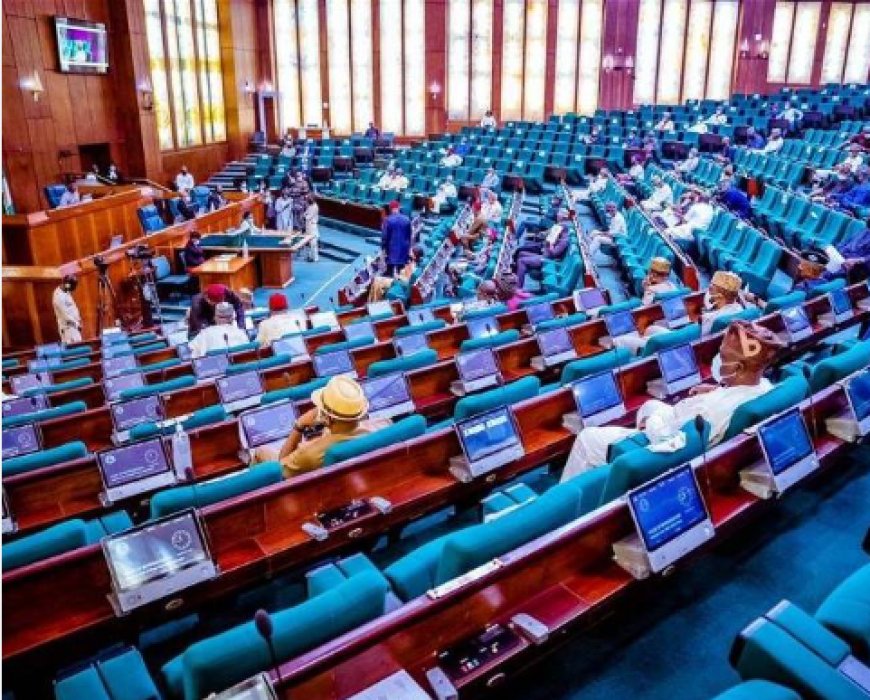Money laundering amendment bill scales second reading in House of Reps

The House of Representatives on Wednesday passed for second reading a bill seeking to amend the Money Laundering (Prevention and Prohibition) Act, 2022, to strengthen Nigeria’s anti-corruption framework and enhance asset recovery efforts.
Sponsored by Hon. Yusuf Gagdi, member representing Kanke/Pankshin/Kanam Federal Constituency of Plateau State, the proposed legislation aims to modernise the country’s anti-graft laws in response to the increasingly sophisticated methods of financial crimes.
Nigeria’s legal framework for combating financial crimes continues to face serious setbacks due to loopholes in existing laws, weak enforcement mechanisms, and persistent political interference.
Although the country boasts a wide range of anti-corruption and financial crime legislation, implementation remains inconsistent and often ineffective. These gaps have created fertile ground for illicit financial flows, costing the nation billions of dollars annually through practices such as trade misinvoicing, tax evasion, and the theft of natural resources.
Experts warn that without stronger institutional independence and better coordination among regulatory and enforcement agencies, efforts to stem corruption and recover stolen assets will remain largely symbolic. They also stress the need for greater political will to ensure that laws are applied uniformly, regardless of status or influence.
Reforms aimed at closing legal loopholes, improving transparency, and insulating anti-graft institutions from political pressure are seen as essential to restoring public confidence and safeguarding Nigeria’s economic stability.
Leading the debate on the general principles of the bill, Gagdi described the fight against money laundering and illicit financial flows as “one of the most defining governance challenges of our time.” He noted that despite the existing framework under the 2022 Act, a significant volume of unlawful financial activities continues to infiltrate the nation’s financial and property systems through “complex methods of consignment and layering.”
According to the lawmaker, the amendment seeks to introduce a civil recovery mechanism that would enable the government to reclaim assets linked to unexplained wealth through non-criminal proceedings.
While the current Act provides for criminal prosecution and forfeiture of assets derived from illicit sources, it places an onerous evidential burden on law enforcement agencies,” Gagdi explained. “This often frustrates the timely recovery of stolen assets, as many individuals with questionable wealth continue to live extravagantly beyond their legitimate means.”
He emphasised that the proposed legislation will complement the existing criminal forfeiture framework by shifting the burden of proof to individuals in possession of suspicious assets, requiring them to demonstrate the lawful origin of their wealth.
“This civil forfeiture model has proven effective in jurisdictions such as the United Kingdom, Kenya, and South Africa in curbing corruption, deterring financial crimes, and enhancing asset recovery,” he said.
The objectives of the bill, Gagdi added, include establishing a clear legal framework for civil recovery orders, empowering anti-graft agencies—such as the Economic and Financial Crimes Commission- to apply to a high court ex parte for restraining orders on assets deemed inconsistent with a person’s known legitimate income, and ensuring a fair and transparent judicial process.
“If enacted, this legislation will ensure that every Nigerian lives within the means of their legitimate income, while preventing political and bureaucratic shields from protecting proceeds of corruption. By passing this bill, we signal Nigeria’s commitment to global best practices in combating money laundering and illicit financial flows,” Gagdi said.
Following debate on the bill, lawmakers unanimously supported its passage for second reading when it was put to a voice vote by the Speaker of the House, Tajudeen Abbas, who presided over Wednesday’s session.
The bill was subsequently referred to the relevant House Committee, which is expected to conduct a public hearing to gather stakeholders’ input before the legislation proceeds to its third and final reading.

 admin
admin 


